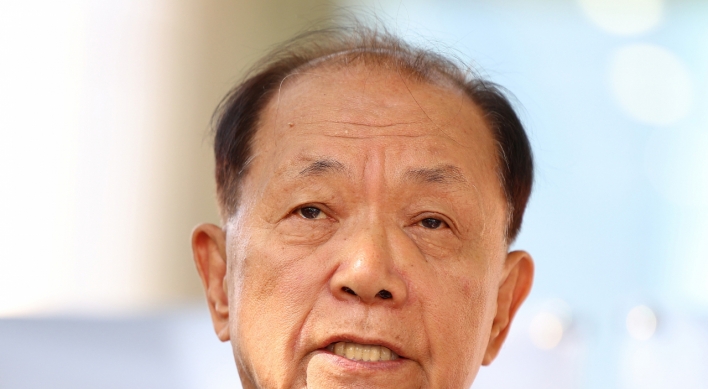87% of inter-conglomerate deals are private contracts
By Korea HeraldPublished : July 9, 2012 - 20:03
Private contracts accounted for the bulk of all business deals involving transactions among affiliates of South Korea’s top conglomerates in 2011, fueling criticism of unfair business practices, a report showed Monday.
The report by Chaebol.com, a local conglomerate research firm, said that in 2011, 87.1 percent or 132.9 trillion won ($116.4 billion) worth of all contracts signed between companies owned by the country’s 10 largest conglomerates, were through closed negotiations. Total inter-conglomerate transactions reached 152.7 trillion won for the entire year.
According to the data, private contracts made up 85.3 percent of the 4,987 individual deals reached last year.
Private or negotiated contracts do not open competition through a bidding process but are reached with interested parties getting together to work out details of the deal.
“Such arrangements make it easier for conglomerates to give favor to affiliates and makes it harder for companies outside the business group to win such contracts,” an official for the corporate information provider said.
Such closed-door deals can also result in big businesses helping firms owned by family members of the conglomerate’s large shareholders, to unfairly make “easy money” by winning lucrative contracts offered by big businesses that dominate South Korea’s business community.
Others such as Kim Ky-won, an economics professor at Korea National Open University, said the prevalence of private contracts can lead to embezzlement and conflict of interest of the business groups.
Samsung Group, the country’s No. 1 family-owned conglomerate, reported 35.4 trillion won worth of inter-group deals last year with 93.3 percent or little over 33 trillion won involving private contracts.
Hyundai Motor Group and SK Group, the country’s second and third largest conglomerates, also carried out private contracts, with such deals making up 91.4 percent and 90 percent of all transactions, respectively.
(Yonhap News)
The report by Chaebol.com, a local conglomerate research firm, said that in 2011, 87.1 percent or 132.9 trillion won ($116.4 billion) worth of all contracts signed between companies owned by the country’s 10 largest conglomerates, were through closed negotiations. Total inter-conglomerate transactions reached 152.7 trillion won for the entire year.
According to the data, private contracts made up 85.3 percent of the 4,987 individual deals reached last year.
Private or negotiated contracts do not open competition through a bidding process but are reached with interested parties getting together to work out details of the deal.
“Such arrangements make it easier for conglomerates to give favor to affiliates and makes it harder for companies outside the business group to win such contracts,” an official for the corporate information provider said.
Such closed-door deals can also result in big businesses helping firms owned by family members of the conglomerate’s large shareholders, to unfairly make “easy money” by winning lucrative contracts offered by big businesses that dominate South Korea’s business community.
Others such as Kim Ky-won, an economics professor at Korea National Open University, said the prevalence of private contracts can lead to embezzlement and conflict of interest of the business groups.
Samsung Group, the country’s No. 1 family-owned conglomerate, reported 35.4 trillion won worth of inter-group deals last year with 93.3 percent or little over 33 trillion won involving private contracts.
Hyundai Motor Group and SK Group, the country’s second and third largest conglomerates, also carried out private contracts, with such deals making up 91.4 percent and 90 percent of all transactions, respectively.
(Yonhap News)
-
Articles by Korea Herald






![[KH Explains] No more 'Michael' at Kakao Games](http://res.heraldm.com/phpwas/restmb_idxmake.php?idx=644&simg=/content/image/2024/04/28/20240428050183_0.jpg&u=20240428180321)











![[Herald Interview] Mistakes turn into blessings in street performance, director says](http://res.heraldm.com/phpwas/restmb_idxmake.php?idx=652&simg=/content/image/2024/04/28/20240428050150_0.jpg&u=20240428174656)
